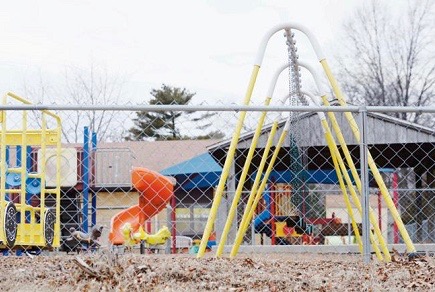RELIGIOUS LIBERTY CASE BEFORE HIGH COURT
Bill Donohue
The U.S. Supreme Court is set to hear oral arguments in an important religious liberty case. The issue is pretty straight forward: when it comes to the disbursement of public funds for a secular purpose, can a state treat a religious entity in a manner that is different from a non-sectarian institution?
Trinity Lutheran Church in Columbia, Missouri applied for a state grant to pay for a playground that serves its preschool. It was turned down: aid to churches is forbidden by the Missouri Constitution. Trinity Lutheran filed suit, arguing that its religious liberty rights, as affirmed by the First Amendment, have been violated; it also maintained that the Fourteenth Amendment’s provision ensuring “equal protection before the law” has been sundered.

The amicus brief against Trinity Lutheran was filed by Americans United for Separation of Church and State, the Interfaith Alliance, and six Jewish groups. The brief is weak, in many respects.
The first weakness is evident right from the get-go. “The framers of the First Amendment and of the early state constitutions sought broadly to protect religion against the corrupting influences that could result from public funding….”
In fact, the founders allowed state churches to exist at the time of the First Amendment; there was one in Massachusetts until 1833. President Jefferson, typically cited as a defender of a strict wall separating church and state, provided public funding to the Kaskaskias Indians: the money was earmarked to build a Catholic Church. By contrast, the faithful at Trinity Lutheran are merely seeking public funds to fix their playground.
The brief takes a generous, and fundamentally dishonest, view of the origins of the Missouri Constitution. It offers a beneficent reason why aid to religious entities was banned, holding that it was done to avoid the political and social problems attendant to such aid. In fact, nativism was at work: the goal was to keep Catholics in their place.
Nearly 80 percent of the states today have a provision that was built into their constitution as a direct result of bigotry. During Reconstruction, the Ku Klux Klan and other anti-Catholics campaigned to deny aid to Catholic schools—schools that were founded to escape Protestant bigotry—and they found a sympathetic ear when Senator James Blaine took up their cause. Though he failed to amend the U.S. Constitution to reflect this goal, his effort was not in vain: one state after another changed its constitution to accomplish this end.
Some things never change. The brief has an air of paranoia to it. It raises the question of whether there might be religious symbols in the playground. What about religious classes? Will religious ceremonies take place there? Will there be any indoctrination?
It’s a playground—not a church. What are they afraid of? That the playground is going to be converted into some kind of grand venue for Bible readings? Or that unsuspecting neighbors might be targeted for proselytization, right next to the swings?
Are these lawyers even aware that voters regularly cast their ballots in church basements? Has anyone been corrupted by this practice? For that matter, if churches accommodate the government without a problem, why can’t government accommodate churches?
We have had paid chaplains in the House and Senate since the beginning of the Republic. They open each session with a prayer—in a public building—and no one, save for fanatics, is upset. If Trinity Lutheran gets its new playground, it’s a safe bet that only the zealots will lose any sleep over it.
Disclaimer: Articles featured on Oregon Report are the creation, responsibility and opinion of the authoring individual or organization which is featured at the top of every article.


